Changing production and consumer behaviour is vital to resolve the growing environmental disaster caused by the fashion industry. But what impact can micro companies have?
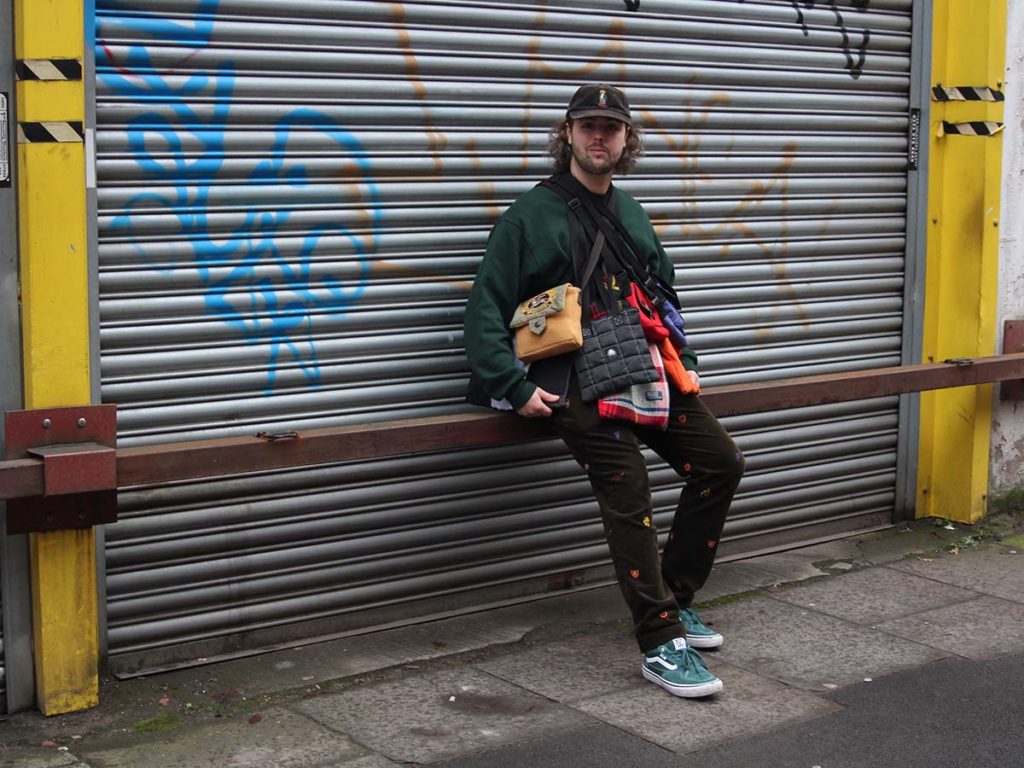
Sustainability and climate action are now unavoidable topics in the fashion world. Tackling fast fashion, using greener materials, minimising transport and changing consumer behaviour are vital steps to saving the planet. While there is a lot more work to be done, there have been some significant changes, with companies like Burberry (who used to burn millions of pounds of stock each year to ensure it didn’t get sold at a diminished price) now providing un-sold and dead stock garments and fabric to fashion design students. Vintage clothing has also become a much more mainstream consumer choice, most notable through Depop’s meteoric rise (PYMNTS.com report them as having an 100% year on year increase in revenue).
These behavioural shifts are vital early steps towards a sustainable industry, but action needs to happen on every scale and buying vintage alone is only one step in the right direction. What about damaged items, marked clothing and old fabric that has a one-way ticket to landfill? How do we work towards a circular process that enables the materials we have already created to have a second lease of life? Should this be left to the realms of big business or can small grass-roots action contribute?
Let’s hear from two micro business re-working and up-cycling materials to understand the impact they can have.
Will Cotterill – Millennial Vintage
Will has been buying and selling vintage for several years, but started de-constructing items to make into bags at the start of the first lockdown. One of his main sources for clothes is car boot sales, where he could pick up designer gear but often found it would be damaged in some way.
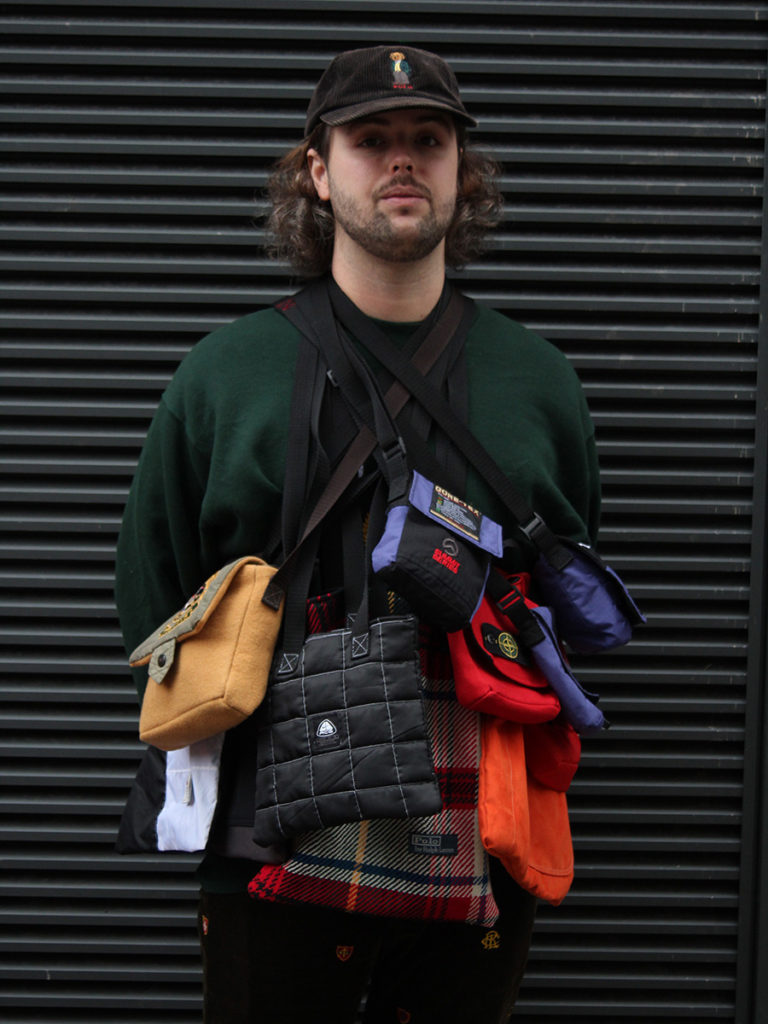
“I saw a problem there. Because I’d pick up Versace, Louis Vuitton, Gucci, or streetwear brands like Adidas and Nike which are kind of stained and wrecked or had holes in them and needed something doing with them.”
This process has enabled Will to create new fashion pieces from items that would likely have been discarded otherwise, “even if they ended up with charity shops they couldn’t be sold – because they’d be past the point of repair.”
Although he is aware of the need for big fashion houses to drive significant change, Will also believes that this kind of action (when shared and delivered in the right way) can also have an impact. Rather than keep the design process secret, WIll makes a conscious effort to share details and shots of his process to try and inspire others to look at the materials they have and see if they could rework them.
“I don’t think I really want it to be secret. I want people to know that this started out as a ripped jacket. Here it is to start with, here’s me putting it together, here’s me constructing the panels and designing it. Then here’s me finally sewing it in and bringing it together. I like sharing that process because I think if I was to just show the final product, I don’t think people would understand the journey that it’s already been on.”
He even gets customers messaging him with pictures of their old garments to see if he could use those – an early sign that this approach is spreading interest.
“Even though I might not be directly contributing massively, I am contributing in a way by inspiring other people to get involved or buy secondhand and buy reworked. Yeah.”
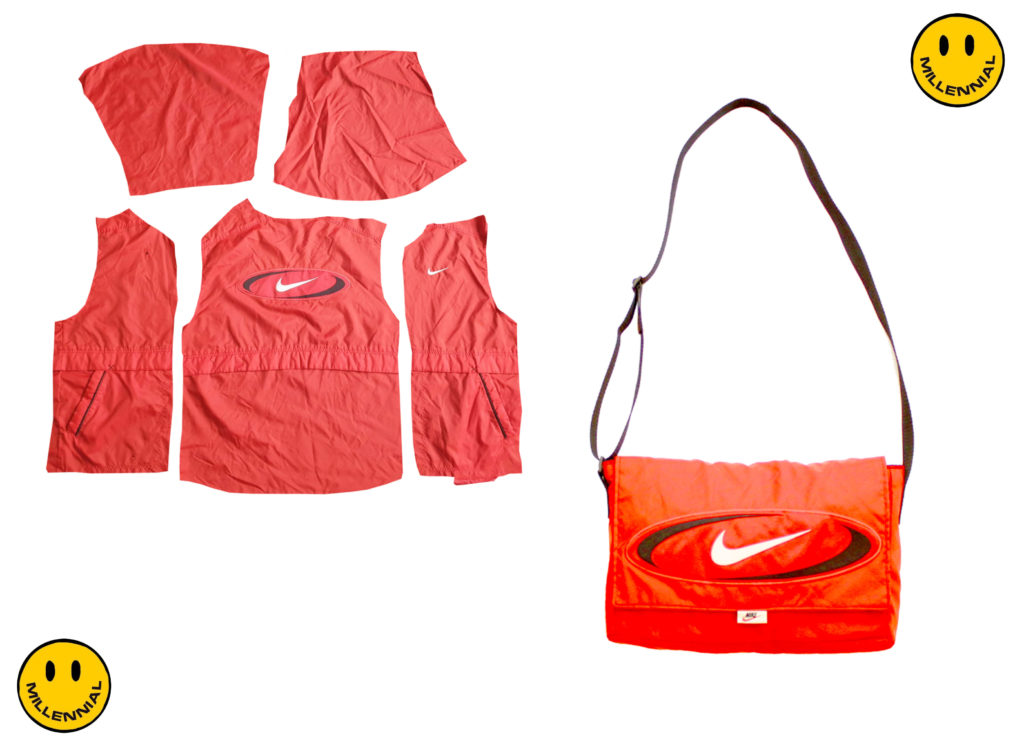
Fine Millennial’s Insta & Depop here.
Amy Travis – Kanoa Living
Amy runs a clothing and jewellery company with her mum (Gail) and sister (Holly). The brand has been going about eight years and has a huge focus on ethical practice.
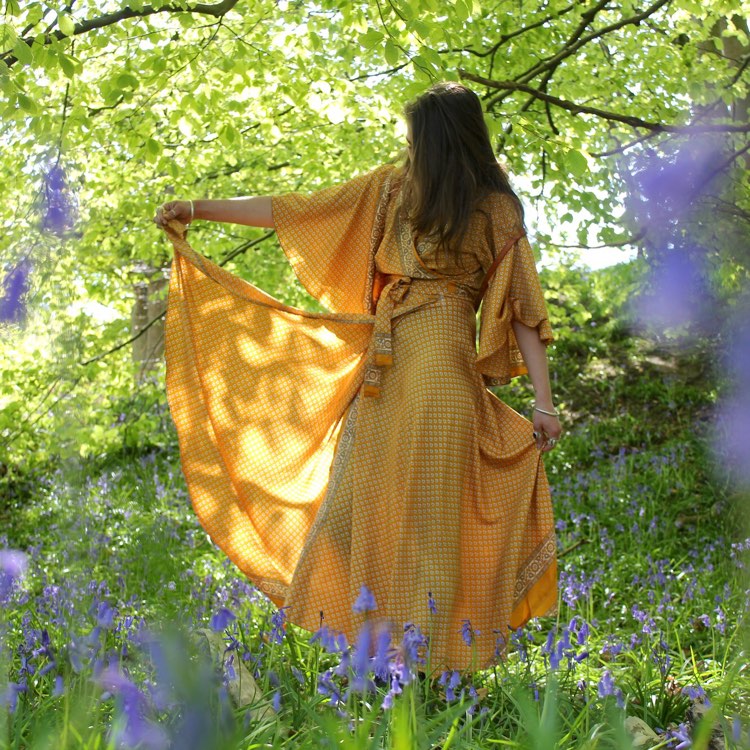
“I’ve been travelling quite a bit and saw how incredibly creative some of the people that you meet when you’re out there, how insane some of the designers are and how little they get paid,” said Amy. “So minimal for something so incredible. So we started on that basis really, to go out to these places and to meet the artisans and actually give them a fair wage.”
This process has seen the three of them befriend and work with small family businesses across South East Asia and India. Amy explains that it was after several trips to India that they first thought to get into re-worked garments. Having fallen in love with the colours and smells and stories of Rajasthan, the three of them decided to make an effort to dig into the local scene there and find out who the makers were and if they could collaborate with them. This search led them to find a small family-run workshop who they now employ to re-work second hand Saris into dresses.
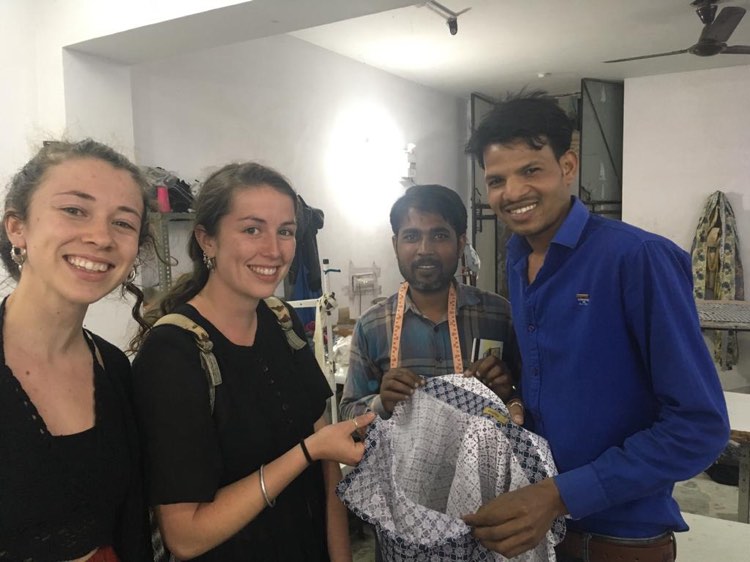
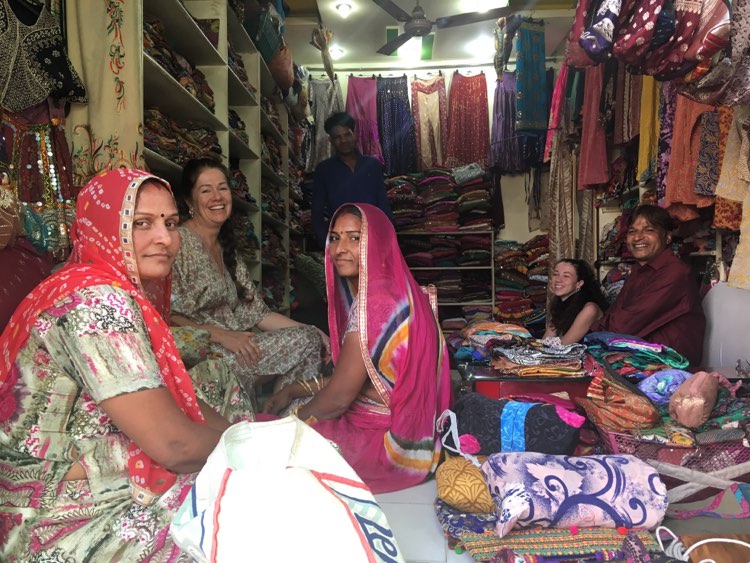
“I just thought is such a great way to use such incredible material that they’ve got so much of and turn it into something that can be sold more widely in the West.”
This has proved a huge success, as the company now sell the Sari dresses at artisan markets all over Manchester, their store in Wilmslow and at festivals around the UK. For Amy, encouraging fair wages for good work and helping in any way to tackle environmental issues is a huge life drive.
“I think it’s about spreading the awareness. We were thinking of looking into getting cotton, and doing a whole separate run through that. But then actually, just to do that we’d want to know who the pickers are – which can be kids. This is where spending time with people in different places is important. You learn to pick up the culture to a degree, and the way things work in different places.”
This nuance and care is what makes Kanoa such a stand-out brand. Presenting their reworked sari dresses to the Western customers gives them space to explain the heritage of where these items come from, but also serves as a reminder that discarded materials can be brought right back into the economic circle in a whole new form.
